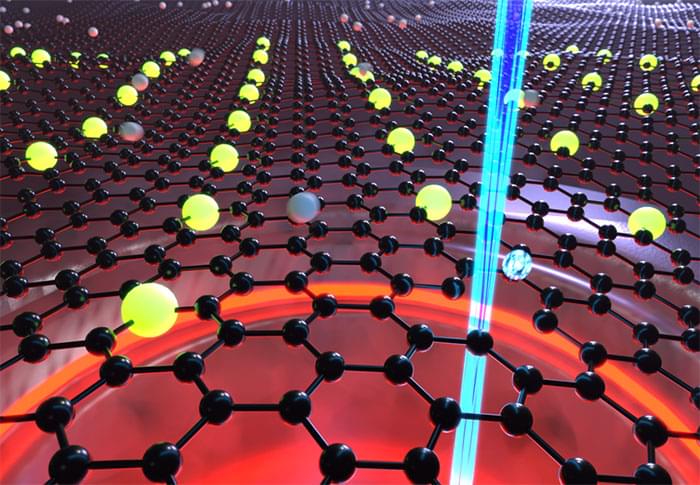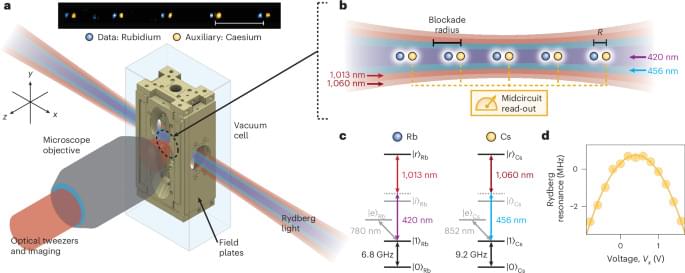Sep 25, 2024
‘Writing’ with atoms could transform materials fabrication for quantum devices
Posted by Dan Breeden in categories: computing, nanotechnology, particle physics, quantum physics
A new technology to continuously place individual atoms exactly where they are needed could lead to new materials for devices that address critical needs for the field of quantum computing and communication that cannot be produced by conventional means, say scientists who developed it.
A research team at the Department of Energy’s Oak Ridge National Laboratory created a novel advanced microscopy tool to “write” with atoms, placing those atoms exactly where they are needed to give a material new properties.
Continue reading “‘Writing’ with atoms could transform materials fabrication for quantum devices” »

















